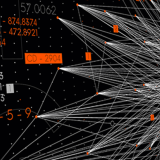EU context
Oblikovalci politike morajo pridobiti znanje, ki jim bo pomagalo obravnavati vprašanja v zvezi z učinkovito zakonodajo, zagotavljanjem socialne zaščite v njenem najširšem smislu ter usklajevanjem zahtev podjetij, družb in posameznikov pri izkoriščanju številnih prednosti digitalizacije.
Evropska komisija je leta 2015 sprejela Strategijo za enotni digitalni trg za Evropo, v kateri je poudarila, da je to ena od njenih političnih prednostnih nalog. S strategijo se lahko ustvarijo digitalne priložnosti za državljane in podjetja, njen cilj pa je krepiti vodilni položaj EU v svetu na področju digitalnega gospodarstva. Njen cilj je izboljšati dostop do informacij, zagotoviti zaposlitev osebam z ustreznimi digitalnimi veščinami in preoblikovati javne storitve. Ker se po EU širi sodelovalno gospodarstvo, si Komisija prizadeva spodbuditi razvoj novih in inovativnih storitev ter hkrati zagotoviti ustrezne zaščitne ukrepe. Komisija je v sporočilu z naslovom Evropska agenda za sodelovalno gospodarstvo iz leta 2016 pojasnila pravila in priporočila glede politik na tem področju za državljane, podjetja in države članice.
Eurofoundovo delo
Eurofound proučuje širše posledice vse večjega obsega in dosega digitalnih tehnologij za delovne razmere, ureditev dela in druge vidike trga dela.
Proučuje se vpliv prelomnih novih tehnologij na storitve. Eurofound proučuje tudi posledice gospodarstva platform, zlasti dela množice, za trg dela. Poleg tega se nadaljuje raziskava delovnih razmer in pogojev zaposlitve mobilnih delavcev, ki delo opravljajo z IKT.
Proučila se bo narava dela in zaposlitve v digitalni dobi, s poudarkom na:
Ključni prispevki
V skupnem poročilu z Mednarodno organizacijo dela (ILO) o delu kadar koli in kjer koli je proučen vpliv dela na daljavo in mobilnega dela z IKT na izbrane elemente delovnih razmer.
Eurofoundovi seminarji v sklopu fundacije (FSS) so za vlade, sindikate in delodajalce priložnost za razpravo o razvoju socialnih, zaposlitvenih in z delom povezanih politik na področju EU. Leta 2016 so bili seminarji FSS osredinjeni na vpliv digitalizacije na delo in pripravo nacionalnih programov za boljše izvajanje digitalnih sprememb.



































